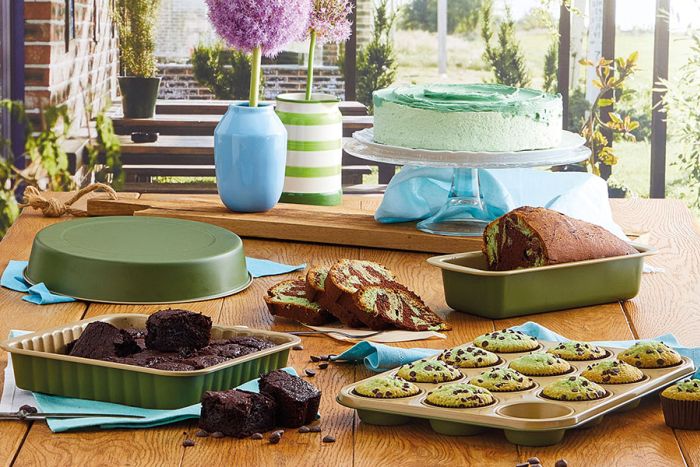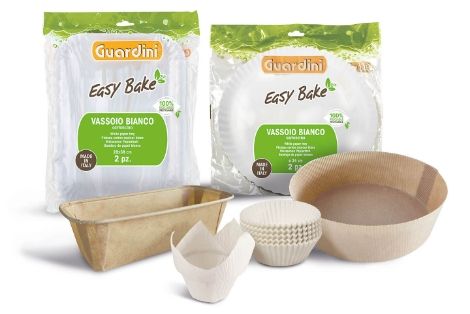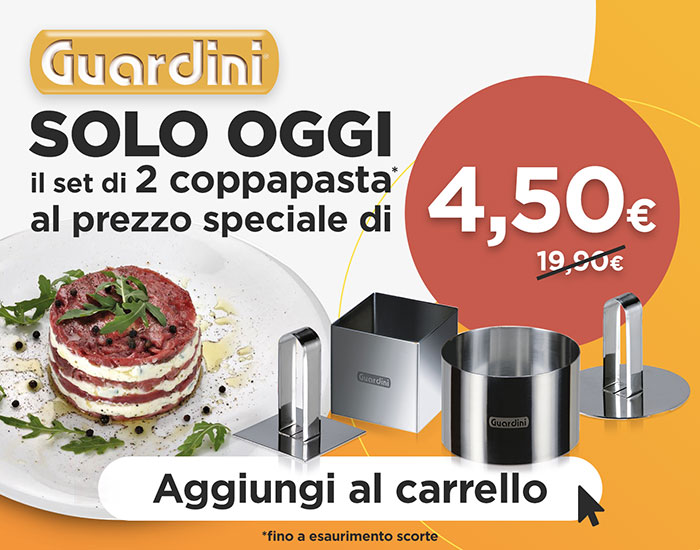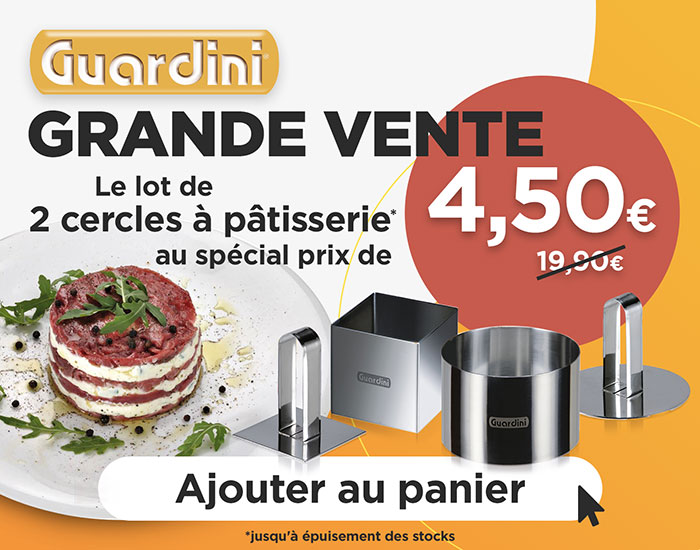
Sustainable innovation
We want the Guardini brand to be synonymous not only with quality and Made in Italy but also with sustainability.Marco Guardini, CEO Guardini S.p.A.

Sustainable innovation is our starting point.
We want our products to address the environmental challenges of our time. During the innovation phase, we prioritize sustainability by designing new products with the aim of minimizing their environmental impact.
Optimized Thickness Steel
We use optimized thickness steel designed to employ only the necessary amount of material. This choice significantly reduces waste of raw materials without compromising quality, ensuring uniform cooking in less time and resulting in energy savings.
Latest Generation Non-Stick Coatings
Our non-stick coatings, developed using cutting-edge and environmentally friendly technologies, eliminate polluting components from the production process. This approach not only improves product performance but also reduces the environmental footprint of production.
From Recycling to Recovery
We adopt sustainable solutions throughout the production chain, favoring packaging from certified sources, such as FSC paper, and reducing the volume of packaging materials. Furthermore, we strive to maximize the recovery and recycling of resources, thereby minimizing the overall environmental impact.

The ECCS steel (Electrolytic Chromium Coated Steel) used for our bakeware has excellent elasticity characteristics and can therefore be processed at very thin thicknesses (0.3/0.4 mm). In addition to using less material during the production process, the reduced thickness of the steel ensures excellent baking performance while reducing cooking times and achieving energy savings.
Material Innovation and Circular Economy
LCA e XCarb®
In 2022, we conducted a Life Cycle Assessment (LCA) study to evaluate the environmental impacts, including the carbon footprint, of a medium-sized Guardini baking pan, following international standards ISO14040, ISO14044, ISO14067, and PCR “Tableware and kitchenware” by EPD International. The main objectives were to identify areas for improvement across the product life cycle and communicate our environmental commitment to stakeholders.
Key Results and Areas for Improvement
Steel Production Phase (Upstream)
53,7%
Contributes 53.7% of total CO2e emissions.
To address this, we sought a collaboration with ArcelorMittal to use their XCarb® Green Steel, which allowed us to significantly reduce our emissions (-42%) and our Scope 3.
Usage Phase
(Downstream)
20,4%
Accounts for 20,4% of total CO2e emissions.
In light of this data, we launched a consumer awareness campaign on conscious water use during washing and the impact of oven cooking, which represents over 90% of emissions in the usage phase.
The study led us to launch the XBake, collection, made with low CO2e steel and a 100% PFAS-free non-stick coating. The collection reflects our commitment and that of our production chain, with which we share values and vision.
Our Sustainable Collections

XBake
The collection of low environmental impact bakeware.

B-Nat
The range of bakeware with non-stick coating made from Carnauba Wax.

Easy Bake Bio
The range of disposable bakeware made from fully recyclable or compostable paper.
Our Commitment in Numbers
From recycling to recovery, our goal is to maximize waste utilization and reduce waste.
Sustainable Development Goals
Sustainable Innovation


We promote research and development activities aimed at reducing the overall environmental impact through the use of production technologies that minimize energy consumption and employ more sustainable, recycled, and recyclable materials.
Our Goal for 2026
By 2026, we aim to increase the percentage of recycled plastic in our total packaging plastic use to 50%.


